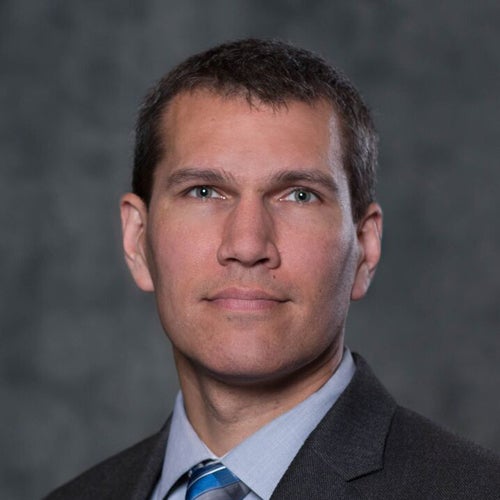
-
JRSC 1W15
- rosek4@rpi.edu
-
(518) 276-8288
About
Dr. Kevin Rose received his Ph.D. in Ecology, Evolution, and Environmental Biology from Miami University studying the causes and consequences of variation in ultraviolet radiation in aquatic ecosystems. Following his Ph.D., Dr. Rose went on to a postdoctoral fellowship at the Smithsonian Environmental Research Center, an AAAS Science and Technology Policy Fellowship at the U.S. National Science Foundation, and a postdoctoral appointment at the University of Wisconsin-Madison. Dr. Rose joined at the Department of Biological Sciences at Rensselaer Polytechnic Institute in 2015 as the Frederic R. Kolleck ’52 Career Development Chair in Freshwater Ecology.
Ph.D. Miami University, 2011 - Ecology, Evolution and Environmental Biology
B.A. Lehigh University, 2005 - International Relations
B.S. Lehigh University, 2004 - Materials Science and Engineering
Postdoctoral Research & Training
Postdoctoral Fellow, Smithsonian Environmental Research Center, 2011-2012
AAAS Science and Technology Policy Fellow, U.S. National Science Foundation, 2012-2014
Postdoctoral Associate, University of Wisconsin, Madison, 2014-2015 - Zoology
Research
Dr. Rose’s research spans aquatic ecology and biogeochemistry to understand how natural and anthropogenic processes affect the structure and function of freshwater ecosystems. A goal of his lab group is to forecast the future state of lake ecosystems in a regional to global context, with an emphasis on understanding how freshwater ecosystems are changing in response to local to global changes in land use and climate. This interdisciplinary research draws on skills in biology, ecology, biogeochemistry, advanced environmental sensors, and computational modeling.
Aquatic Ecology, Biogeochemistry, Advanced Environmental Sensors, Computational Modeling
Teaching
By appointment
BIOL 4880/6880 - Global Environmental Change
This four credit course is taught in spring semesters. The course explores global environmental cycles, patterns, and changes. It covers elemental cycles of phosphorus, nitrogen, and carbon, and pollutants such as CFCs, and how changes in these global cycles influence organisms and ecosystems. Also discussed are large-scale biotic processes and theory about ecosystem dynamics. Major ecological issues such as acid rain, eutrophication, climate change, and land use conversation are also discussed. In addition to traditional course modes of learning and engagement, students read, analyze, and critique peer-reviewed scientific literature on course topics. Students cannot get credit for both BIOL 4880 and BIOL 6880.
BIOL 4200 - Biostatistics
This four credit course is taught in fall semesters. The course covers an introduction to the concepts and techniques of modern statistics. Students engage in hands-on statistical programming in the R statistical software environment to ingest, manipulate, analyze, and visualize data. Example data sets are drawn from the biological and ecological fields, including real-time data from ongoing research activities. Statistical topics covered include sampling and error, regression, analysis of variance, factor analysis, MANOVA, maximum liklihood methods, discriminant analysis, time series analysis, and forecasting. In addition to traditional forms of evaluation (e.g., homework and exams), students select a data set to independently analyze, visualize, and present to classmates on an ecological or biological topic of their choice.
BIOL 6971 - Advanced Topics in Ecology and the Environment
This two credit course is taught in fall semesters. The course represents an in-depth study of current peer reviewed literature and topics in the field of ecology and the environment. Students read, analyze, evaluate, and discuss peer-reviewed papers and present and lead discussions on peer-reviewed articles. The course theme rotates each semester. Past themes have included "Classic and contemporary papers in ecology" (Fall 2020) and "Carbon cycling in aquatic ecosystems" (Fall 2021).
Publications
The following is a selection of recent publications in Scopus. Kevin Rose has 99 indexed publications in the subjects of Agricultural and Biological Sciences, Medicine, Earth and Planetary Sciences.
News
The Global Water Lab
We are a research team based at Rensselaer Polytechnic Institute in New York, USA. Our research spans ecology and biogeochemistry and focuses predominantly on understanding broad-scale patterns and processes at the ecosystem and macrosystem scale. We often focus on freshwater ecosystems such as lakes and ponds, because they represent archetypal sites to develop and test ecological theory, and also provide critical services to society. A goal of our lab group is to forecast the future state of aquatic ecosystems in a regional to global context, with an emphasis on understanding how freshwater ecosystems are changing in response to factors such as land use and climate change. Our interdisciplinary research draws on diverse skills in biology, ecology, biogeochemistry, advanced environmental sensors, and computational modeling.
We believe that productive and sustainable research is best accomplished when individuals are supported and empowered to succeed. We proactively foster a healthy, balanced, and inclusive lab culture via open communication and a collaborative spirit. We seek to support and inspire our teammates to grow as confident, collaborative, and passionate leaders in research, education, and community engagement.